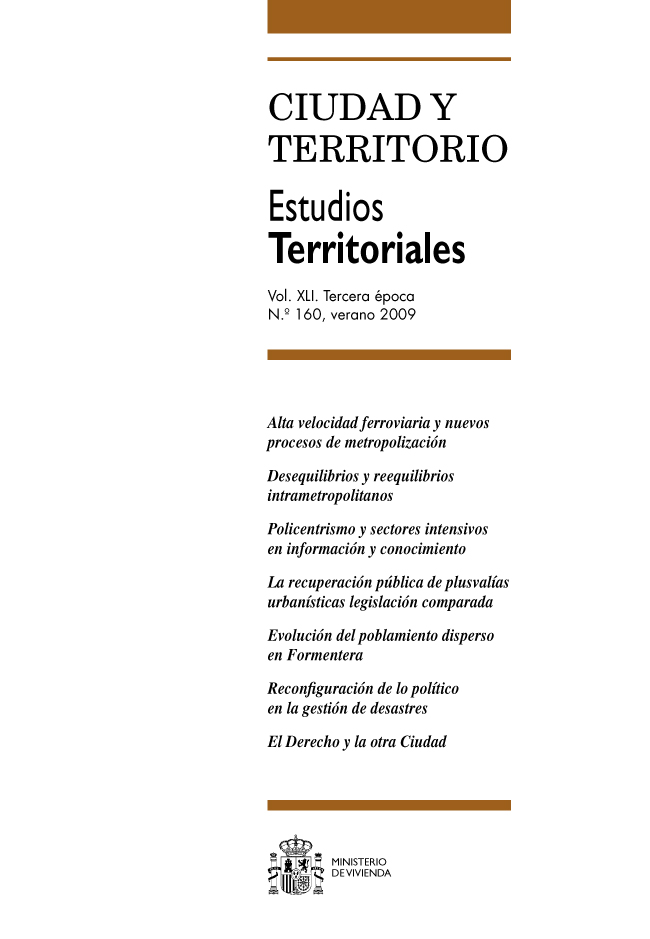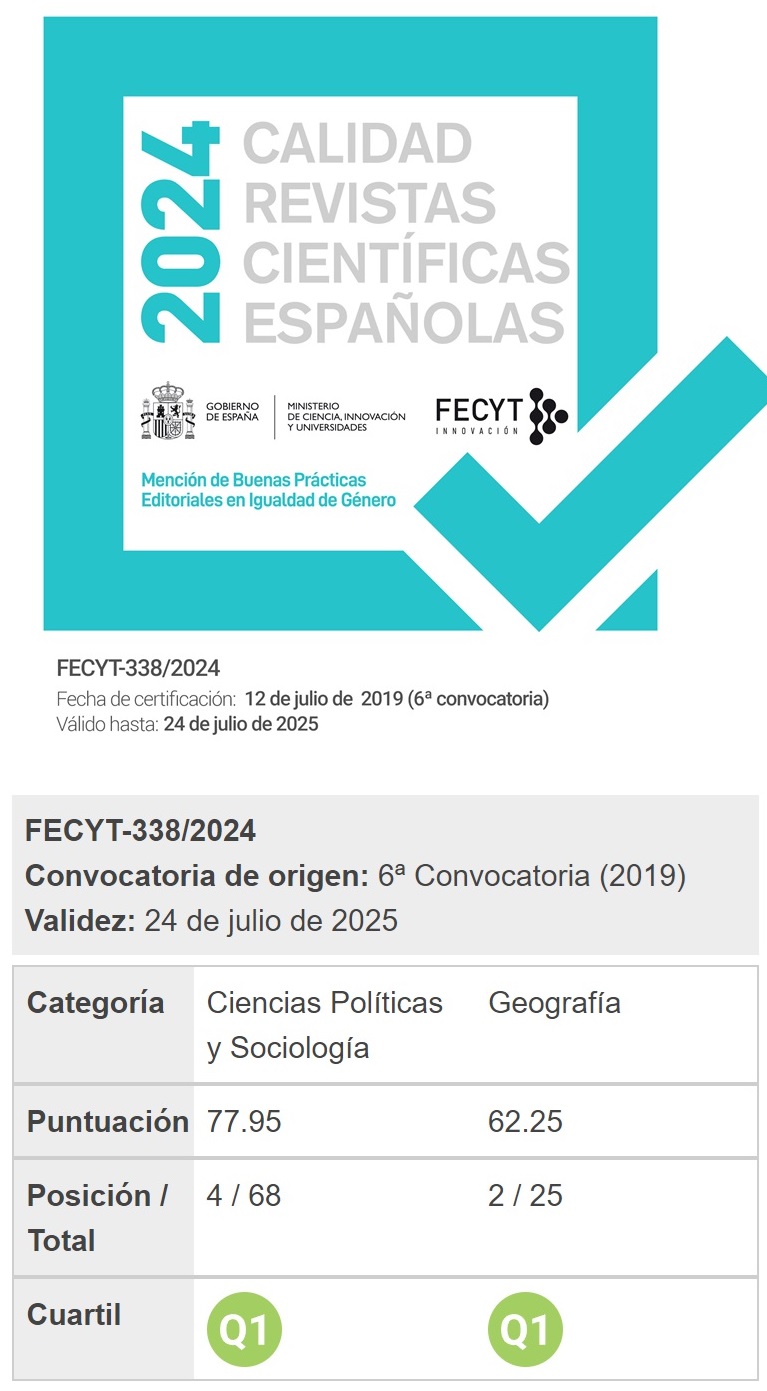Desequilibrios y reequilibrios intrametropolitanos: principios de evaluación y metodología de análisis
Palabras clave:
Desequilibrios territoriakes, diagnóstico urbano, principios de evaluación territorial, análisis estadístico, sistemas de información geográficaResumen
El diagnóstico y valoración de las estructuras territoriales a la luz de ciertos principios considerados
socialmente relevantes y compartidos en nuestro horizonte histórico tales como cohesión-integración,
eficiencia espacial y competitividad, sostenibilidad, calidad de vida y bienestar, equidad territorial o justicia
ambiental, constituye un frente de indagación cuyos resultados poseen notorio interés para los ciudadanos
y para los responsables políticos, puesto que permiten clarificar, primero, en qué medida la organización del
territorio se ajusta a dichos principios y, luego, orientar la formulación de políticas correctoras. En este artículo
se persigue por un lado reinterpretar conceptualmente los desequilibrios-reequilibrios espaciales en
términos de tales principios, y por otro exponer una metodología de análisis de los mismos, en gran medida
apoyada en técnicas estadísticas y sistemas de información geográfica, que ha sido usada en una amplia
investigación dirigida a evaluar la organización espacial y los cambios recientes de la metrópoli madrileña.
Finalmente y como ilustración, algunos de los resultados son brevemente expuestos.
Descargas
Descargas
Publicado
Cómo citar
Número
Sección
Licencia
Derechos de autor 2009 Antonio Moreno Jiménez, Julio Vinuesa Angulo

Esta obra está bajo una licencia internacional Creative Commons Atribución-NoComercial-SinDerivadas 4.0.
Sin perjuicio de lo dispuesto en la legislación vigente sobre Propiedad Intelectual, y conforme a la misma, el/la los/las autor/a/es/as que publiquen en CyTET cede/n a título gratuito, de modo no exclusivo y sin límite temporal al Ministerio de Transportes, Movilidad y Agenda Urbana los derechos para difundir, reproducir, comunicar y distribuir en cualquier formato actual o futuro, en papel o electrónico, la versión original o derivada de su obra bajo licencia de Creative Commons Reconocimiento-NoComercial-SinObraDerivada 4.0 Internacional (CC BY-NC-ND 4.0), así como para incluir o ceder a terceros la inclusión de su contenido en índices, repositorios y bases de datos nacionales e internacionales, con referencia y reconocimiento en todo caso de la autoría del mismo.
Además, al realizar el envío, el/la los/las autor/a/es/as declara/n que se trata de un trabajo original en el que se reconocen las fuentes que han sido utilizadas en su estudio, comprometiéndose a respetar la evidencia científica y a no modificar los datos originales para verificar o refutar una hipótesis de partida; que el contenido esencial del mismo no ha sido publicado previamente ni se publicará en ninguna otra obra o revista mientras esté en proceso de evaluación en la revista CyTET; y que no se ha remitido simultáneamente a otra publicación.
Los autores deben firmar un Formulario de Cesión de Derechos, que les será enviado desde la Secretaría de CyTET una vez se acepte su artículo para ser publicado.
Con el objetivo de favorecer la difusión del conocimiento, CyTET se adhiere al movimiento de revistas de Open Access (OA) y entrega la totalidad de sus contenidos a diversos índices, repositorios y bases de datos nacionales e internacionales bajo este protocolo; por tanto, la remisión de un trabajo para ser publicado en la revista presupone la aceptación explícita por parte del autor/a de este método de distribución.
Se anima a las/os autoras/es a reproducir y alojar sus trabajos publicados en CyTET en repositorios institucionales, páginas web, etc. con la intención de contribuir a la mejora de la transferencia del conocimiento y de la citación de dichos trabajos.








 Enlace a CyTET en Linkedin
Enlace a CyTET en Linkedin